Overnight oats have become a beloved breakfast option for busy mornings, offering convenience and versatility in one jar. But while this dish may seem foolproof, there are plenty of ways it can go awry. From using the wrong liquids to tossing in certain fruits too early, small mistakes can ruin the texture, taste, and overall enjoyment of your oats. This article explores the common pitfalls to avoid, helping you craft a meal that’s creamy, flavorful, and always on point.
Table of contents
Overnight Oats
The Rise of Overnight Oats in Modern Breakfasts
Overnight oats have taken the breakfast world by storm, and for good reason. This no-cook meal is a lifesaver for those with jam-packed mornings. By soaking oats in liquid overnight, you wake up to a ready-made, nourishing dish that can be enjoyed cold or warmed up. Plus, the flavor possibilities are endless!
What makes overnight oats truly special is their ability to fit into various diets—vegan, gluten-free, high-protein, or low-sugar. But despite their ease, preparing them isn’t always straightforward. Small missteps can lead to bland, unappetizing results.
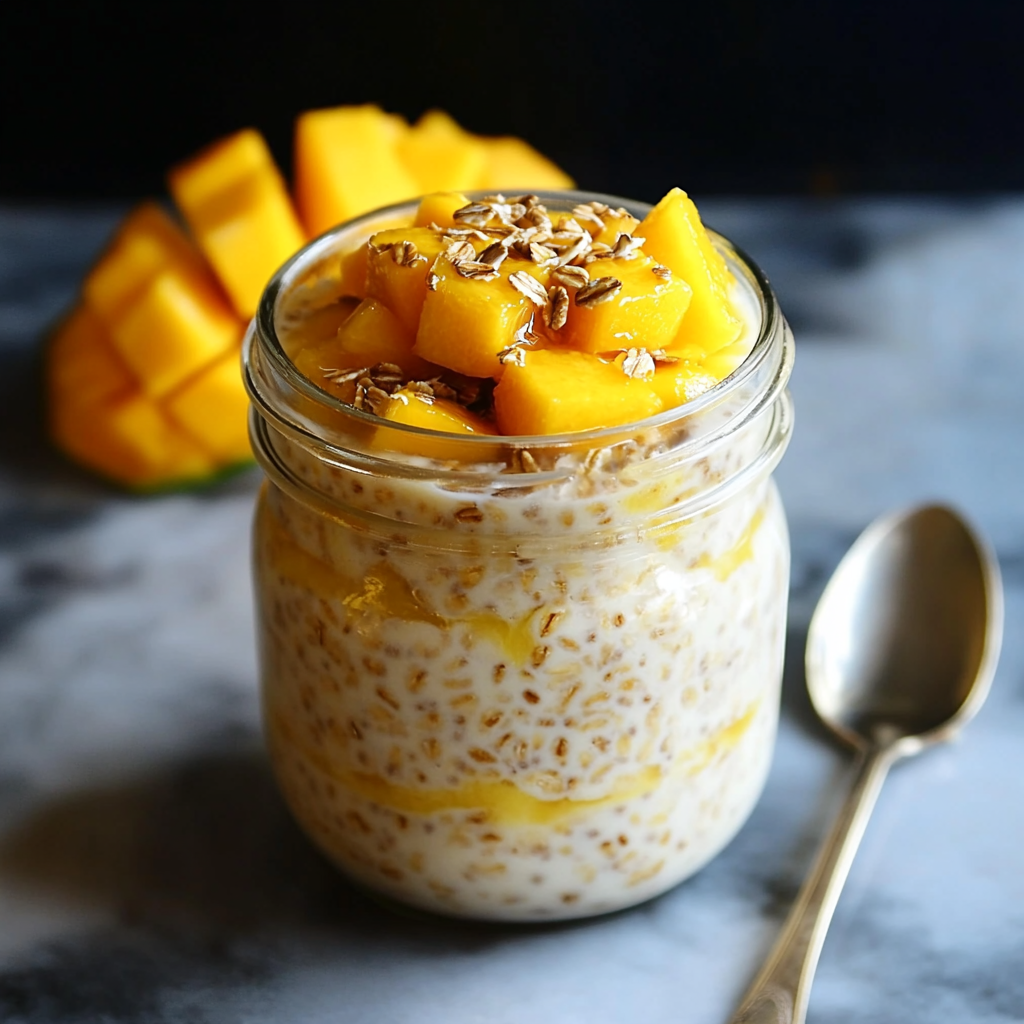
Why Ingredient Choice Matters in Overnight Oats
Ingredient choice can make or break your overnight oats. It’s not just about tossing oats and milk into a jar. The wrong liquid might ruin the texture, and skipping salt or spices could leave you with a flavorless breakfast. Even healthy toppings like certain fruits can become a mushy mess if added too early. By knowing what to avoid, you can transform this simple dish into something satisfying and memorable.
Common Liquid Mistakes
Avoiding Water for Better Flavor and Texture
When making overnight oats, the liquid you choose plays a huge role in the final outcome. While water might seem like a simple option, it’s one of the biggest culprits behind bland, lackluster oats. Sure, water softens the oats, but it does nothing to boost flavor or creaminess. If you’re aiming for rich, satisfying oats, skip the water. Instead, opt for milk—whether it’s cow’s milk, almond milk, or oat milk. These alternatives not only add flavor but also create a smoother, creamier consistency.
Using water might save calories, but it sacrifices the taste and texture you’d expect from a breakfast worth savoring. If you’re wondering what not to add in overnight oats, water should be at the top of the list unless there’s absolutely no other option available.
Choosing the Right Milk Alternatives
Not all milk alternatives are created equal, so choosing the right one is crucial. For example, soy milk adds a protein boost, while cashew milk gives your oats an ultra-creamy texture. Coconut milk is another excellent choice, bringing a tropical vibe to your breakfast. However, be mindful of flavored or sweetened varieties, as they might overpower the dish.
Experiment with different milks to find what suits your taste, but steer clear of overly diluted or processed options that can leave your oats runny. By choosing the right liquid, you’ll ensure your overnight oats are both tasty and satisfying.
Neglected Ingredients: Salt and Spices
The Importance of Adding a Pinch of Salt
It’s easy to focus on sweet toppings like fruit and honey, but neglecting salt can leave your oats flat. Salt might seem unnecessary in a sweet dish, but it’s a game-changer. Just a small pinch can balance out sugary flavors, enhancing the natural taste of the ingredients. Cold foods, like overnight oats, tend to have muted flavors, making salt even more essential.
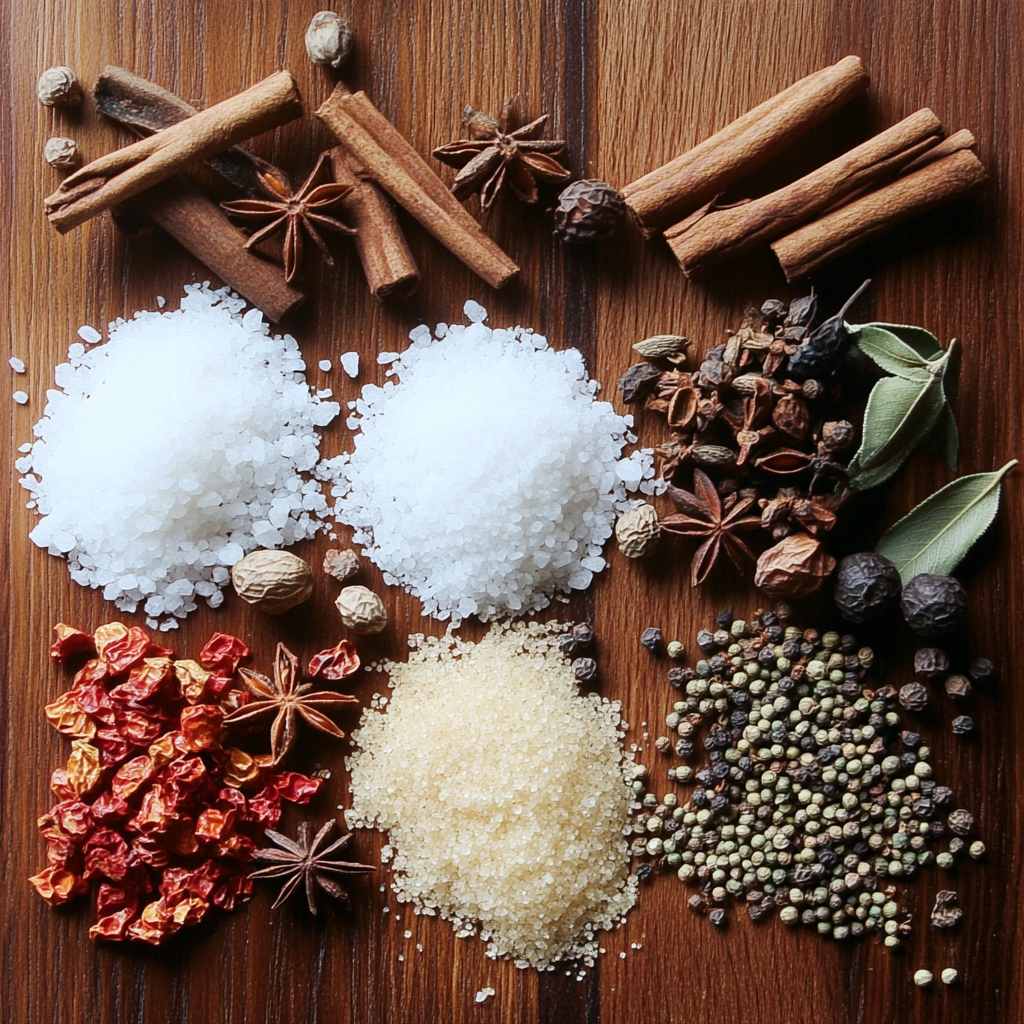
When thinking about what not to add in overnight oats, skipping salt is a mistake you don’t want to make. Without it, your breakfast might lack the depth and dimension that make oats truly delicious.
Spices That Enhance Your Overnight Oats Flavor
Spices are another overlooked ingredient that can elevate your overnight oats. A dash of cinnamon, nutmeg, or even pumpkin spice can transform your oats into a comforting and flavorful treat. If you’re feeling adventurous, try cardamom or ginger for a bolder twist.
However, avoid adding too many spices at once. Overpowering the dish with conflicting flavors can ruin the balance. Start with small amounts and adjust to your taste. By incorporating the right seasonings, your overnight oats will go from ordinary to exceptional, proving that it’s not just about what you add, but also what not to add in overnight oats to keep them perfect.
Types of Oats to Avoid
Why Instant Oats Lead to a Soggy Mess
Not all oats are created equal when it comes to overnight oats. Instant oats, while quick and convenient for hot breakfasts, are a poor choice for soaking overnight. These oats break down too quickly, resulting in a soggy, unappetizing texture. If you’re wondering what not to add in overnight oats, instant oats top the list due to their inability to hold up under extended soaking.
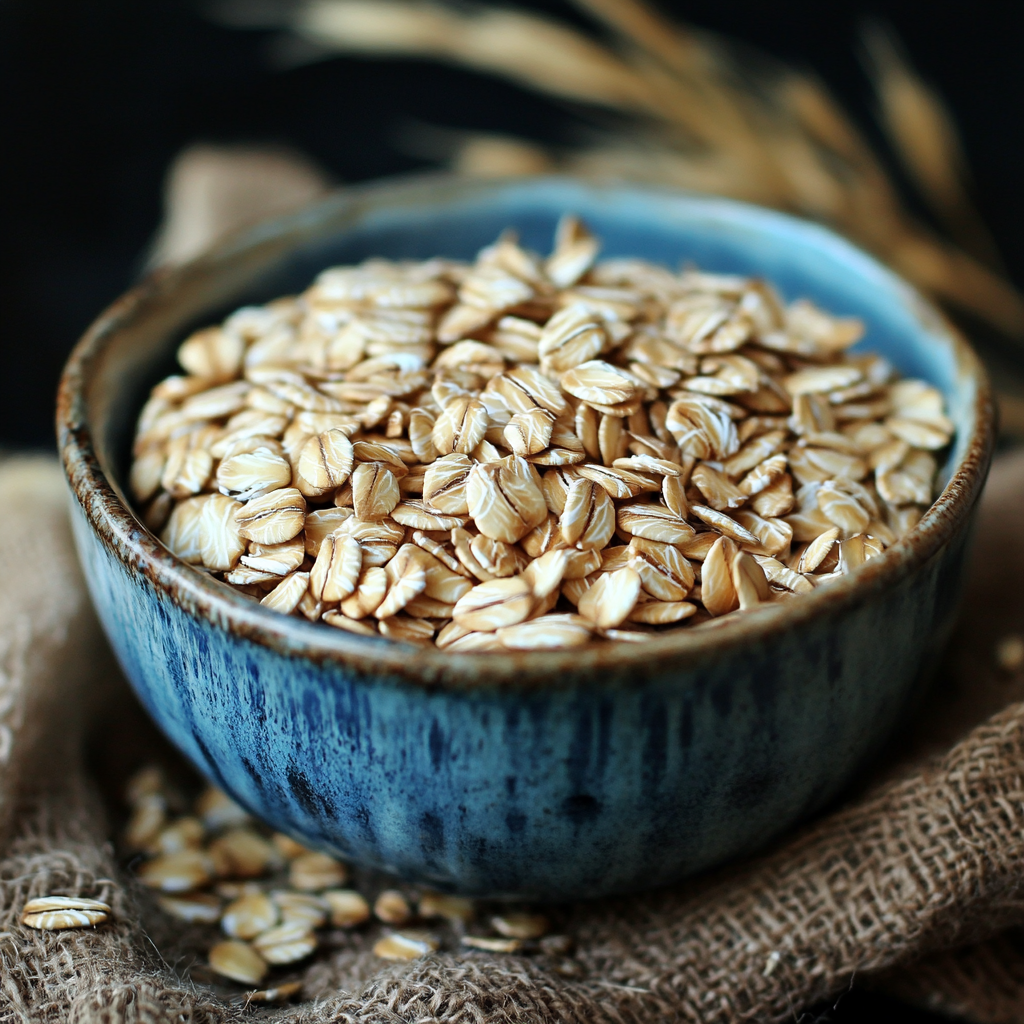
To achieve the perfect creamy texture, stick to old-fashioned rolled oats. They absorb liquid at just the right rate, providing a balanced consistency without turning mushy. Plus, they retain their shape better, giving your oats a satisfying bite.
Steel-Cut Oats: Hard Texture Warning
On the other end of the spectrum, steel-cut oats are another variety to avoid for overnight preparation. These oats are minimally processed and take much longer to soften. Even after a night in the fridge, they can remain gritty and tough to chew. If you prefer steel-cut oats, consider cooking them partially before soaking to avoid a disappointing breakfast.
Looking for more oat-based recipes? Check out the Mango Overnight Oats Recipe for a fresh twist on this classic breakfast.
Fruits That Don’t Hold Up Overnight
The Problem with Adding Berries Too Early
Adding fruits to overnight oats is a delicious way to enhance flavor and nutrition, but timing is everything. Berries, for instance, should not be added during the overnight soaking process. Their delicate skins and high moisture content cause them to break down quickly, leaving your oats soggy and stained with an unappetizing hue.
If you want to include berries in your oats, add them fresh just before eating. This ensures they remain vibrant and maintain their natural texture, giving your breakfast a refreshing burst of flavor.
Best Practices for Adding Fresh Fruits
For fruits that hold up well overnight, bananas and apples are excellent options. Slice them thinly and mix them into your oats for a hint of natural sweetness. Dried fruits like raisins or apricots also work wonderfully, as they soften slightly without becoming mushy.
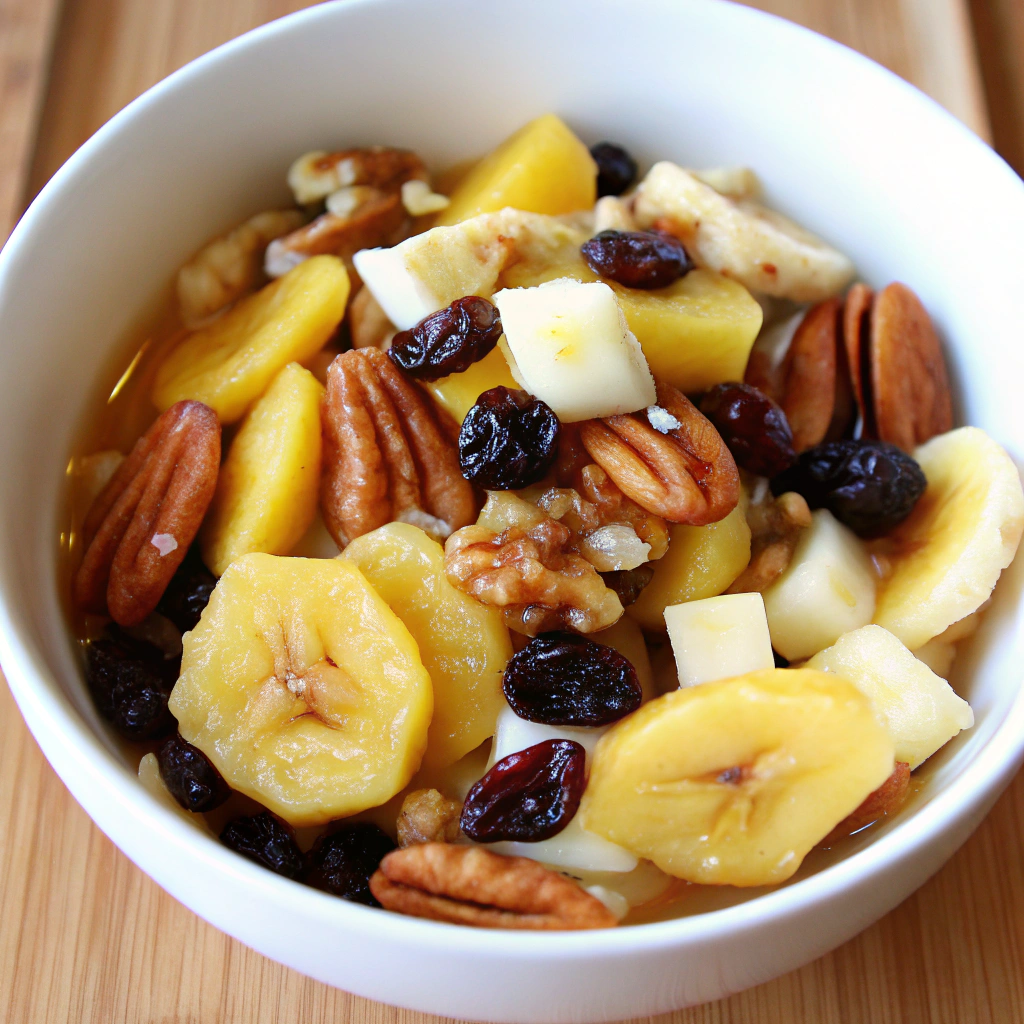
Avoid citrus fruits and watery fruits like melons, as these can release too much liquid, diluting the consistency of your oats. Knowing what not to add in overnight oats ensures your breakfast stays flavorful and visually appealing.
For more fruity inspiration, try experimenting with recipes like Strawberry Chia Seed Pudding for a creamy, fruity delight!
Textural Pitfalls: Nuts and Seeds
Why Crunch is Crucial for Enjoyment
Texture plays a big role in how much you enjoy your overnight oats. Adding the right ingredients can make your oats exciting to eat, while skipping them might leave your breakfast feeling bland and one-dimensional. Nuts and seeds are essential for providing that much-needed crunch. Their addition elevates not just the texture but also the flavor, offering a balanced bite every time.
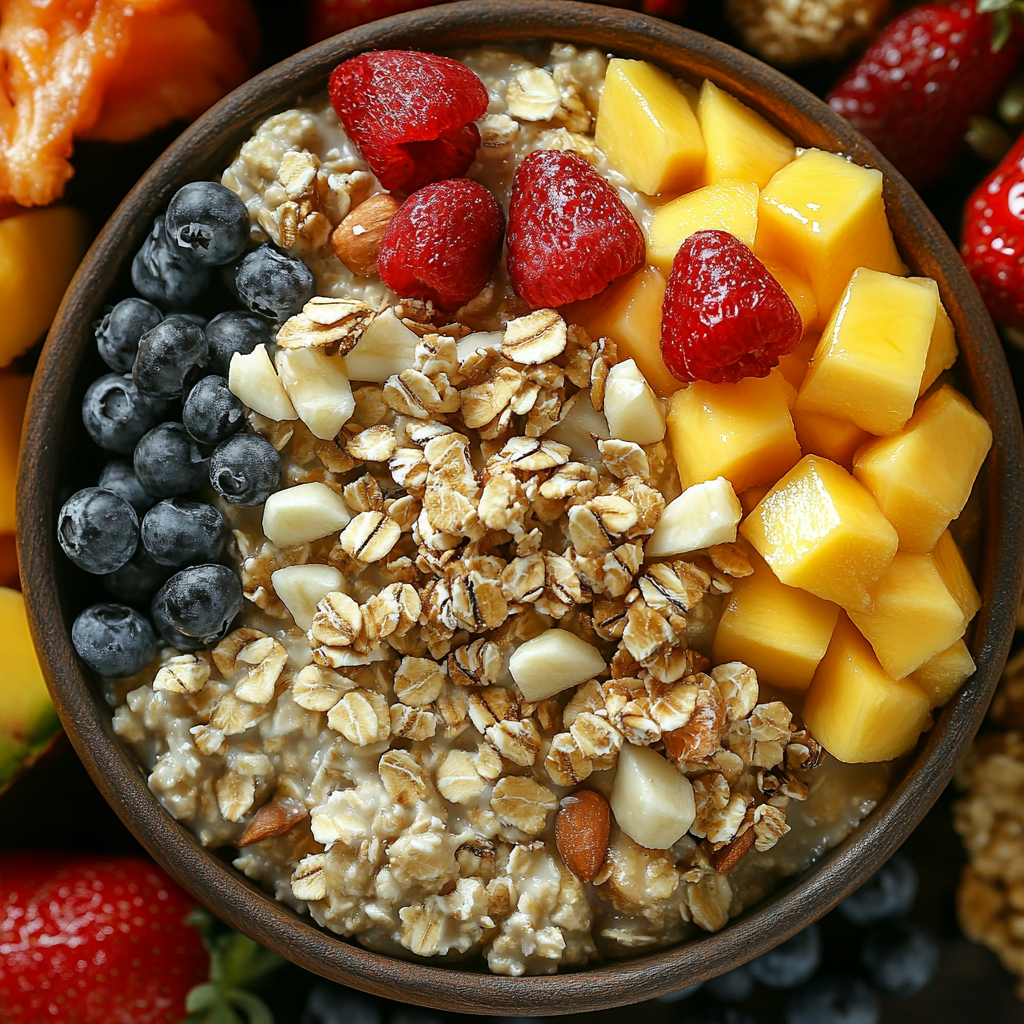
However, knowing what not to add in overnight oats is equally important. Some nuts, like pecans or walnuts, may become soft if added the night before. To preserve their crunch, sprinkle them on just before serving. This simple trick ensures your oats stay crisp and satisfying.
The Right Types of Nuts and Seeds to Use
Choosing the right nuts and seeds can also make a big difference. Almonds and pumpkin seeds, for instance, are excellent options as they hold their shape well even after soaking. On the other hand, chia seeds, while softening, provide a creamy, pudding-like texture that complements oats beautifully.
Avoid nuts that are prone to becoming mushy or overpowering, like raw cashews. Pair your oats with seeds like flax or hemp for an added boost of nutrition without compromising texture. Understanding what not to add in overnight oats helps you avoid common pitfalls while creating a breakfast that’s both delicious and wholesome.
Temperature Misconceptions
You Don’t Have to Eat Overnight Oats Cold
Many people think overnight oats must be eaten straight from the fridge. While cold oats are a quick and refreshing option, they’re not the only way to enjoy this dish. If the idea of cold oats doesn’t appeal to you, don’t worry—you can warm them up! Simply pop your oats in the microwave or heat them gently on the stove for a few minutes.
Heating overnight oats is perfect for colder mornings or when you’re craving a cozy, comforting breakfast. It’s also a great way to unlock the full flavor of your ingredients, as warmth can bring out the natural sweetness of fruits and spices.
Simple Tips for Heating Your Overnight Oats
To heat your oats properly, transfer them from the jar to a microwave-safe bowl or saucepan. Add a splash of milk or water to prevent them from drying out during heating. Stir occasionally for even warmth, and finish with your favorite toppings.
If you’re wondering what not to add in overnight oats when you plan to warm them up, avoid fresh berries or heat-sensitive toppings until after they’ve been reheated. This small adjustment ensures your breakfast is as tasty and satisfying as it should be!
Preparing Overnight Oats Ahead of Time
How Long is Too Long? Storage Tips
Overnight oats are loved for their convenience, but they do have a shelf life. Preparing too many jars in advance can lead to disappointing results. While oats can last up to five days in the fridge, their texture and flavor start to decline after the first two or three days. By day five, you might find your oats overly mushy or lacking in freshness.
Knowing what not to add in overnight oats is especially crucial when prepping ahead. Ingredients like fresh fruits or nuts should not be added until just before eating. These can degrade in texture, leaving your oats less appealing. Stick to sturdy mix-ins like dried fruits or nut butter for longer storage periods.
Balancing Freshness with Convenience
To maintain the best quality, consider preparing just two to three jars of overnight oats at a time. This ensures you always have a fresh, satisfying breakfast ready without compromising on taste. For even better results, mix the base ingredients—oats, milk, and yogurt—and add your toppings the night before eating.
If you’re meal prepping for a busy week, stagger your preparation. Make a few jars on Sunday and another batch midweek. This keeps your oats fresher and more enjoyable, proving that it’s not only about what you add but also about what not to add in overnight oats for optimal taste and texture.
Exploring Savory Options
Introducing Savory Ingredients to Overnight Oats
Most overnight oats recipes lean towards sweet flavors, but don’t overlook the potential of savory options. If sweet breakfasts aren’t your style, savory overnight oats are a delicious alternative. Ingredients like vegetable broth, miso, or even plain yogurt can serve as your base, giving your oats a hearty, salty twist.
When deciding what not to add in overnight oats, avoid sugary or overly sweet elements when going the savory route. For instance, sweetened milk alternatives or honey would clash with the flavors of cheese or eggs often used in savory versions.
Best Savory Combinations to Try
Savory oats pair beautifully with toppings like sautéed spinach, avocado, or a soft-boiled egg. For added protein, sprinkle in crumbled bacon or shredded cheese. Seasonings like garlic powder, pepper, or smoked paprika bring depth and warmth to the dish.
If you’re experimenting, start small. Combine basic savory elements first, then gradually add bolder flavors. Avoid mixing in overly pungent ingredients like raw onions right away, as they can overpower your oats. Knowing what not to add in overnight oats when creating savory versions ensures your meal is balanced, flavorful, and satisfying.
Give savory oats a try to broaden your breakfast options. It’s a creative twist that can transform your mornings!
Protein and Nutrition Additions
The Benefits of Adding Greek Yogurt
For a breakfast that keeps you feeling full and energized, protein is key. Greek yogurt is a fantastic addition to overnight oats, providing creaminess along with a protein boost. With just a few tablespoons, you can significantly increase the nutritional value of your meal. Plus, its tangy flavor pairs well with sweet or savory oats.
If you’re considering what not to add in overnight oats, avoid overly flavored or sugary yogurts. These can overwhelm the dish and add unnecessary calories. Stick to plain Greek yogurt for a balanced and nutritious breakfast.
Alternative Protein Boosters for Your Oats
If yogurt isn’t your thing, don’t worry—there are plenty of other options. A scoop of protein powder can blend seamlessly into your oats, adding both flavor and nutrition. Choose flavors that complement your ingredients, like chocolate or vanilla, for sweet oats. For savory options, unflavored protein powder works best.
Other great protein additions include nut butter, chia seeds, or even a sprinkle of hemp hearts. However, avoid using too much of any one ingredient, as it can overwhelm the oats and affect the texture. By knowing what not to add in overnight oats, you’ll create a breakfast that’s both delicious and nutrient-rich.
Soaking Time Essentials
The Importance of Overnight Soaking
The name says it all—overnight oats are designed to soak for several hours, ideally overnight. This extended soak time allows the oats to absorb the liquid fully, creating the creamy texture we all love. Rushing this process by soaking for just an hour or two can leave the oats gritty and less enjoyable.
When considering what not to add in overnight oats, it’s important to avoid shortcuts that compromise texture. Skipping the soak time entirely can result in a meal that feels unfinished and unsatisfying.
Quick Preparation Options for Busy Mornings
If you’re short on time, there are ways to speed up the process. Use quick-cooking rolled oats, which soften faster than regular ones. Alternatively, prepare your oats a day in advance and let them soak while you sleep.
Even with these tips, avoid under-soaking, as it defeats the purpose of overnight oats. Prioritize preparation to ensure your breakfast is always ready and delicious!
Part 12: FAQs About What Not to Add in Overnight Oats (300 Words)
What Are the Worst Ingredients for Overnight Oats?
When making overnight oats, some ingredients simply don’t work well and can ruin the dish. For example, watery fruits like melons and oranges release too much liquid, leaving your oats soupy and unappealing. Similarly, using instant oats can create a mushy texture that’s far from satisfying. Knowing what not to add in overnight oats ensures you avoid these common mistakes and end up with a breakfast that’s both delicious and well-prepared.
Can You Use Water in Overnight Oats?
Technically, yes, but it’s not the best option. Water lacks the creaminess and flavor that milk or milk alternatives bring to the dish. While water will soften the oats, it often leaves them bland and less enjoyable. If you’re in a pinch, water works, but adding yogurt, nut milk, or even a splash of cream can transform your oats into a more satisfying meal.
How Do You Prevent Overnight Oats from Getting Soggy?
To prevent soggy oats, avoid over-soaking or using too much liquid. Stick to a 1:1 ratio of oats to liquid for the best results. Additionally, add toppings like fresh fruits or crunchy nuts just before serving. This simple step keeps your oats fresh and prevents unwanted mushiness.
What Fruits Stay Fresh in Overnight Oats?
Fruits like apples, bananas, and dried fruits hold up well in overnight oats. However, delicate berries or citrus fruits should be added just before eating. This prevents them from breaking down overnight and keeps your breakfast visually appealing and flavorful.
Can Overnight Oats Be Made Savory?
Absolutely! Savory oats are a creative twist on the classic recipe. Use ingredients like vegetable broth, cheese, or eggs instead of sweeteners. Just remember what not to add in overnight oats—sweet fruits or sugary toppings will clash with the savory flavors.
With these tips in mind, your overnight oats will be perfect every time!

